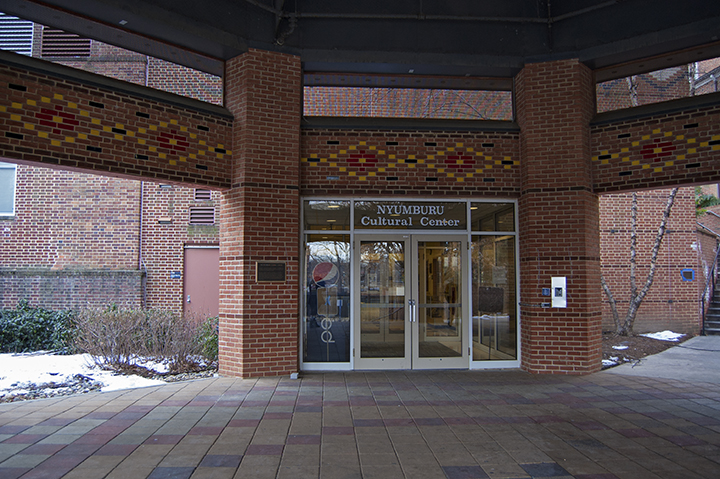
Nyumburu Cultural Center
After transferring to this university in the fall, Jessie Karangu sought to meet people who shared his goal: to learn an indigenous African language.
Karangu, a junior enrolled in letters and sciences, is a Kenyan-American interested in learning Kiswahili — Swahili is the English word for the African language — and the Nyumburu Cultural Center’s Nyumburu Indigenous African Language Program is allowing him to do so. The program’s course — the first of a planned group of courses — allows students of all skill levels to explore the Kiswahili language and African history and culture.
Solomon Comissiong, the cultural center’s student involvement and public relations assistant director, created the program during the 2011-12 academic year with senior Italian major Sankara Kasanje. It was designed to give students a free opportunity to learn a new language and the history behind it in a communal academic setting.
“Language is the cornerstone to anyone’s culture,” Comissiong said.
Comissiong leads some class sessions, along with Kasanje, who is fluent in Kiswahili.
The attendance for the class ranges from eight to 12 people, with the small number keeping the classes “more conducive” to learning, Kasanje said. Not all of the students have a background in speaking the language, but they work together to learn and participate. Many of the students enrolled either have parents from African countries or are just interested in the topic, Kasanje said.
“For some it works as a refresher, but for the most part, everybody is just learning,” Karangu said.
The class meets about twice a week for an hour and reviews topics such as vocabulary, speaking and writing the language. It also includes discussion of the geopolitics behind it, including the Congo crisis, the Kenyan presidential elections and geographical facts. That information is important, Comissiong said, as the context of the language was obscured by years of slavery in Western countries.
“It’s more conversational than lecture,” Kasanje said. “We wanted to also offer something to supplement the conversation and practice.”
Students don’t get academic credit for taking the class, but Karangu doesn’t mind. It’s the cultural bond among the students that makes it worthwhile, he said.
“I wasn’t under the realization that there were so many other Kenyans that attended the school,” Karangu said. “Some of them have the same story I do.”
The group serves as both a class and a student organization, which “provides an opportunity for us to bind,” Kasanje said. The students took a field trip last semester to Swahili Village, a local restaurant that serves Kenyan food, to practice their language skills.
“Whenever you learn a language, you have those embarrassing moments where you say something wrong,” Karangu said. “But since it was something we all wanted to do, the experience was more unique and more special.”
Taqwa Rushdan, a December 2013 alumna, joined the program for her final semester. Rushdan took away a better understanding of the “mother tongue and culture,” she said, with her own curiosity bringing her to the course.
“It just sounded really interesting,” she said. “I was interested in learning more about Swahili, especially because I was an Arabic major.”
Although the program’s classes have focused on Kiswahili thus far, a new program launching this semester, the Pan African Indigenous Language Initiative, also will focus on other languages, such as Haitian Creole and Krio from Sierra Leone, Comissiong said. They ultimately plan to have three separate classes during the semester, Kasanje said.
“You can really see they’re starting to take a lot of pride in what they learn,” Comissiong said.



